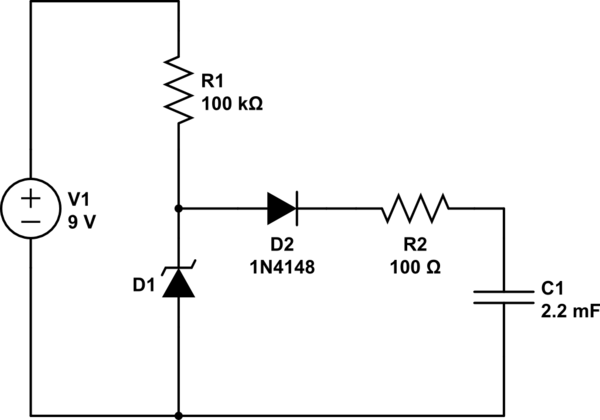KVL rules here. The zener branch (R1 and D1) will be at the same voltage as the capacitor branch (D2, R2, and C1), which will be 9V.
If you want the zener to limit the cap voltage, you need to move D2 to the midpoint junction of R1 and D1.

simulate this circuit – Schematic created using CircuitLab
Don't forget that D2 will eat a few hundred millivolts, meaning your cap voltage could end up as 1.6V or so.
R2 is redundant with a charge resistanceOnce you get the basic idea of 100.1k. I would use a 6.8 volthow the zener or two white Leds in series to charge C1 and drop R1 and diode and keep R2=100. The brightness of led shows charging and no current is wasted when charged. Itclamp works, you can start playing around with the resistor values (hint: is not preciseR2 really necessary?) and voltage may rise to 3V when dimsee how the performance is impacted.
